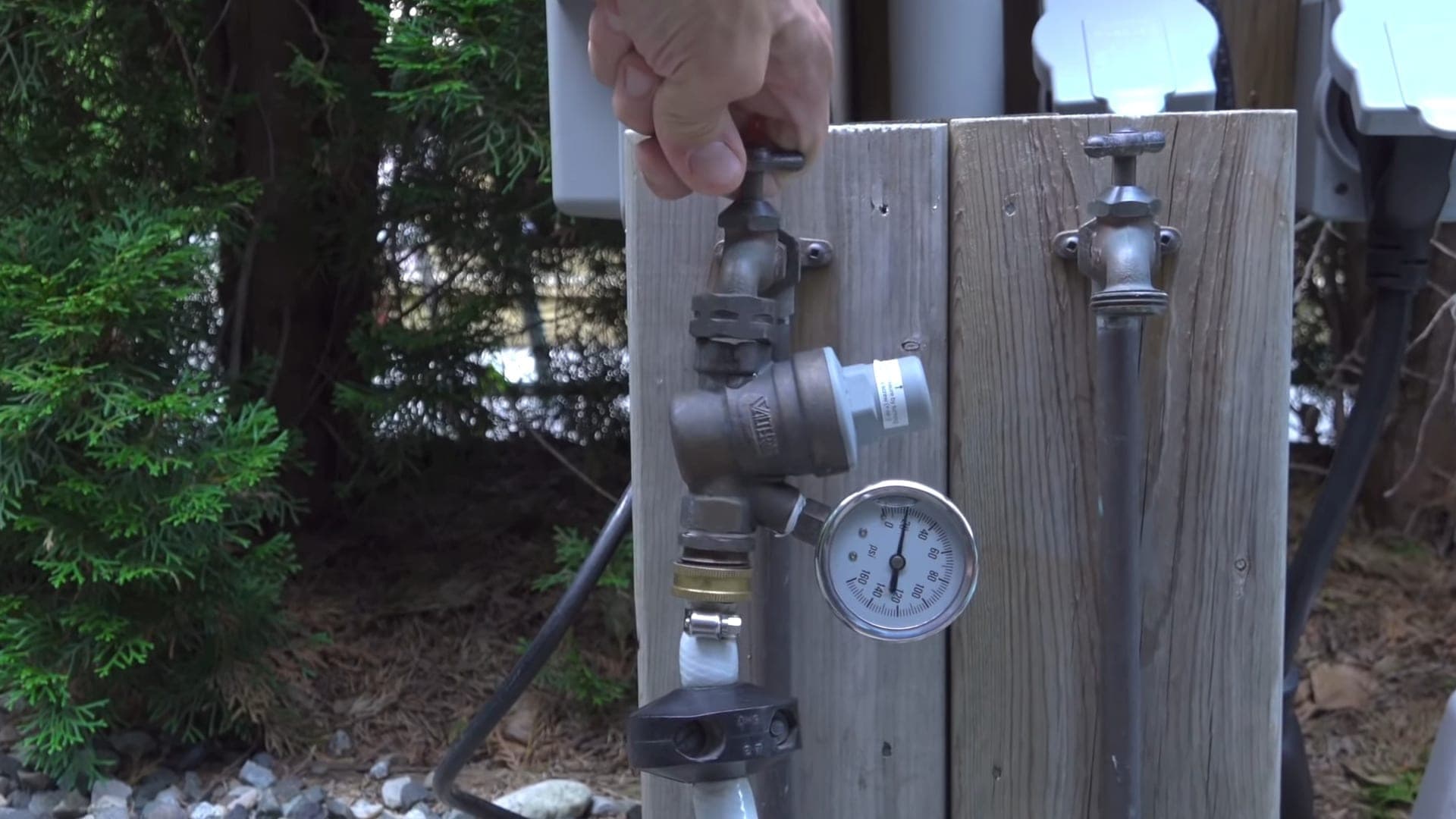Here down the page you can discover more sound information involving Low Water Pressure in the House?.

Low water pressure in your home can be a discouraging issue, impacting every little thing from bathing to cleaning recipes. If you're experiencing weak water circulation, there are a number of feasible reasons and solutions to explore. In this guide, we'll review common reasons for low water pressure and sensible actions to deal with the concern properly.
Intro to Low Water Stress
Low water pressure takes place when the flow of water from your faucets, showers, and other fixtures is weak than normal. This can make day-to-day tasks much more tough and less reliable. Recognizing the sources of low water pressure is crucial to discovering the right option.
Usual Sources Of Low Water Stress
Pipe Obstructions
In time, pipes can come to be blocked with natural resource, sediment, or debris, limiting the circulation of water. This is an usual issue in older homes with galvanized steel pipes.
Corrosion
Corrosion within pipes can result in leaks and reduced water stress. Rust build-up can constrict water circulation, especially in maturing plumbing systems.
Faulty Stress Regulators
Pressure regulators are accountable for preserving consistent water pressure in your home. If they malfunction, it can lead to low water stress or unequal flow throughout your house.
Local Supply Of Water Issues
In some cases, the problem exists outside your home. Local water problems, such as main line leakages or upkeep job, can momentarily lower water pressure in your area.
How to Detect Low Water Stress
Inspecting Faucets and Fixtures
Start by checking the water stress at different taps and fixtures throughout your home. If the issue is isolated to certain areas, it might show local problems.
Evaluating Pipes
Evaluate visible pipes for indications of leakages, rust, or blockages. Take note of any type of unusual noises, such as knocking or rattling pipes, which can show problems within the plumbing system.
Consulting with a Plumber
If you're not able to determine the reason for low tide stress, consider hiring an expert plumber to carry out a complete inspection. They can determine underlying concerns and suggest appropriate remedies.
Do It Yourself Solutions to Repair Low Tide Pressure
Cleaning Aerators and Showerheads
Mineral deposits can gather in aerators and showerheads, decreasing water circulation. Get rid of and cleanse these parts routinely to improve water stress.
Flushing Hot Water Heater
Debris build-up in the hot water heater can restrict flow and reduce performance. Flushing the tank regularly assists eliminate sediment and preserve optimum efficiency.
Inspecting Stress Regulatory Authority
Guarantee that the pressure regulator is functioning correctly. Changing or replacing the regulator can assist bring back proper water stress throughout your home.
Clearing Up Clogs in Pipeline
For small clogs, try utilizing a plumbing serpent or chemical drain cleaner to clear obstructions in pipes. Beware when making use of chemicals and follow security guidelines.
When to Call a Professional Plumber
If do it yourself efforts fall short to deal with the concern or if you believe substantial plumbing troubles, it's finest to look for help from a qualified plumber. They have the knowledge and devices to attend to complex concerns safely and successfully.
Safety Nets to Preserve Water Pressure
Routine Maintenance
Set up routine maintenance for your plumbing system to stop issues such as deterioration, leaks, and clogs. Addressing small troubles early can help prevent even more substantial repair services later.
Installing a Pressure Booster
Think about mounting a stress booster pump to enhance water pressure in areas with constantly low circulation. This can be particularly useful for multi-story homes or residential or commercial properties with high-demand components.
Surveillance Water Use
Be mindful of water usage habits and prevent overtaxing the plumbing system. Simple changes, such as staggering showers and laundry lots, can help preserve ample water stress.
Verdict
Managing low water stress can be discouraging, however identifying the underlying reasons and carrying out suitable services can recover optimal flow throughout your home. Whether it's cleaning up aerators, evaluating pipes, or talking to a plumber, taking positive actions can make certain a stable supply of water for your daily demands.
FOUR WAYS TO FIX LOW WATER PRESSURE NOW
Turning on a shower or faucet only to find the water comes out in a sad, slow drizzle is never a good feeling. How exactly are you supposed to wash a pan or take a quick shower when it takes 10 minutes just to rinse off a little soap? The good news is that when your water pressure is bad, there's always a cause: typically one that can be easily fixed. Here are some of the most common causes of low pressure and what you can do to fix the issue:
DEBRIS AND MINERAL DEPOSIT BUILDUPS
If you notice low water pressure from just one or two of the fixtures in your house, the problem likely has to do with debris buildup. Water is full of minerals and other debris, all of which can accumulate in your pipes and on your fixtures. This can cause a blockage that affects how much water flows through. To fix this, try filling a small plastic bag with white vinegar, and use a rubber band to hang it around your showerhead or faucet. Let the head of the fixture soak for a few hours, and the vinegar should loosen the deposits.
WATER LEAKS
Leaks are another common cause of low water pressure. If water is flowing out of your plumbing through a hole or crack before it can reach your fixture, the pressure coming out of the faucet or showerhead will be lower. A plumbing professional is your best bet for finding and repairing a leak in your water supply pipes.
Leaks are another common cause of low water pressure. If water is flowing out of your plumbing through a hole or crack before it can reach your fixture, the pressure coming out of the faucet or showerhead will be lower. A plumbing professional is your best bet for finding and repairing a leak in your water supply pipes.
FOUR WAYS TO FIX LOW WATER PRESSURE NOW
Turning on a shower or faucet only to find the water comes out in a sad, slow drizzle is never a good feeling. How exactly are you supposed to wash a pan or take a quick shower when it takes 10 minutes just to rinse off a little soap? The good news is that when your water pressure is bad, there's always a cause: typically one that can be easily fixed. Here are some of the most common causes of low pressure and what you can do to fix the issue:
DEBRIS AND MINERAL DEPOSIT BUILDUPS
If you notice low water pressure from just one or two of the fixtures in your house, the problem likely has to do with debris buildup. Water is full of minerals and other debris, all of which can accumulate in your pipes and on your fixtures. This can cause a blockage that affects how much water flows through. To fix this, try filling a small plastic bag with white vinegar, and use a rubber band to hang it around your showerhead or faucet. Let the head of the fixture soak for a few hours, and the vinegar should loosen the deposits.
WATER LEAKS
Leaks are another common cause of low water pressure. If water is flowing out of your plumbing through a hole or crack before it can reach your fixture, the pressure coming out of the faucet or showerhead will be lower. A plumbing professional is your best bet for finding and repairing a leak in your water supply pipes.
Leaks are another common cause of low water pressure. If water is flowing out of your plumbing through a hole or crack before it can reach your fixture, the pressure coming out of the faucet or showerhead will be lower. A plumbing professional is your best bet for finding and repairing a leak in your water supply pipes.
A VALVE ISSUE
If you have low water pressure throughout your home, check your main shut-off valve to make sure it's completely open. You may also want to see if there's a pressure-reducing valve installed. If there is, have a plumber help you adjust the settings to get the pressure you're looking for.
OTHERS USING WATER
Believe it or not, your low water pressure could be caused by your neighbors. If you notice low pressure at certain times of day, it may be because you and the people living next to you have similar schedules - when everyone is showering at the same time, the pressure will be lower in every home. Low pressure throughout the neighborhood may also be caused by an issue with your municipal water supply. If that's the case, call the supplier to see if they're working on the issue.
https://www.rotorooter.com/blog/water-leaking/low-water-pressure-fixes/

As a serious person who reads about 9 Reasons for Low Water Pressure in Your House, I was thinking sharing that topic was essential. So long as you liked our post kindly remember to share it. Thank-you for taking the time to read it.
Click Here